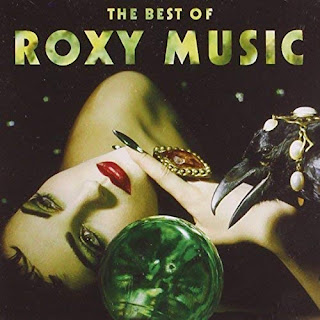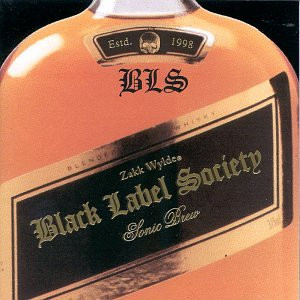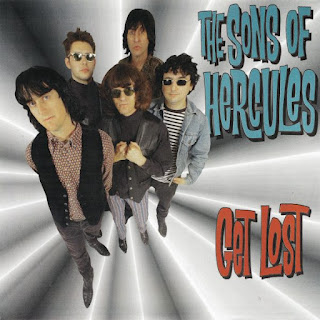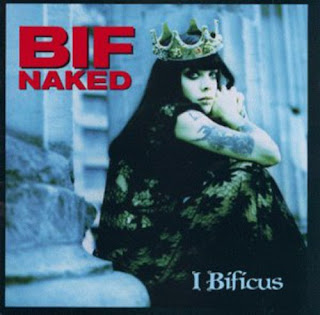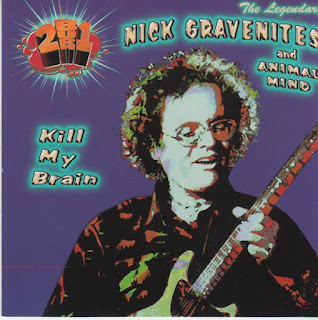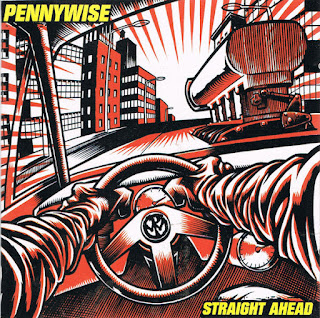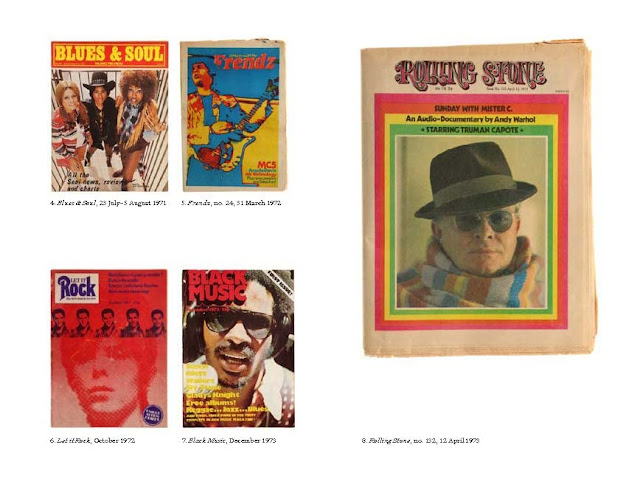Saturday, February 25, 2023
Planet of Sound 2: More Essays From the Rock and Roll Globe Era (2021-2023)
From well-known artists like John Lee Hooker, Lou Reed, Muddy Waters, The Kinks, Edgar Winter, and the Georgia Satellites to lesser-known talents like Joe Grushecky, The Jazz Butcher, Randy California, and Willy DeVille, the Reverend explores the history of these artists and places their legacies into proper context. Planet of Sound 2 also includes several book reviews that delve into the history of the underground comix of the 1970s.
The “Reverend of Rock ‘n’ Roll,” Rev. Keith A. Gordon has been writing about classic rock and blues music for 50 years. A former contributor to the All Music Guide, and the former ‘Blues Expert’ for About.com, Gordon has written for over 100 publications worldwide, including Creem, Blurt magazine, Goldmine, Blues Music magazine, High Times, The Blues (U.K.), and Live! Music Review. The Reverend has also written or edited 26 previous music-related books, including The Jimi Hendrix Reader, The Other Side of Nashville, and and Anarchy In The Music City!
Get an autographed copy from the Reverend for $19.99 postpaid!
Buy the print version or an eBook from Amazon!
Friday, February 24, 2023
Buzz Kuts: Big Meteor, The Pietasters, John Popper, Marky Ramone & the Intruders, The RZA (1999)
Reviews originally published as a “Buzz Kuts” column, Alt.Culture.Guide™, August 1999
BIG METEOR
Wild River
Canada’s Big Meteor – the duo of David Wimble and Larry Wayne Church – deliver an engaging set of country-flavored folk-rock tunes with Wild River. Featuring Wimble’s songwriting skills and understated vocals and some tasty lead guitar from Church, Wild River’s thirteen songs delve into the various facets of interpersonal relationships. Although Wimble’s lyrics can, at times, be a bit oblique, in other instances he can be as transparent as glass. With sparse accompaniment, songs like “Honest Man” or “Mission” reveal Wimble’s philosophical side while “The Waitress” uses simple lyrics to create a beautiful, complex portrait of love and desire, the song underlined by Danny Artuso’s fluid steel guitar lines. The otherwise subdued “Alive In Every Hour” nonetheless offers some mesmerizing six string playing; “Until You Take Your Leave” is one of Wimble’s better songs, a radio-friendly pop country ballad. Wild River suffers from thin production, probably due to Big Meteor’s budget, the resulting loss of dynamics underplaying the charisma of the songs. With fuller production, a bit more vocal projection on Wimble’s part and a little fatter instrumentation, Big Meteor could be a serious contender. As it is, Wild River shows a great deal of promise, Big Meteor a band with a bright future. (Big Meteor, self-produced CD)
THE PIETASTERS
Awesome Mix Tape #6
A lot of the current crop of ska bands take their cue from the previous generation of island music aficionados, who were themselves mere carbon copies of an earlier generation. I’m not saying that you have to go all the way back to mid-‘60s Jamaica to cop the proper influences, but like an original that fades with each photocopied duplicate, so too do a lot of today’s trend-following ska-mongers sound like pale imitations of the real thing. Not so with the Pietasters, who have obviously studied the old masters and sound as refreshing and energetic today as those old Maytals’ records once did. Due to this musical diligence, Awesome Mix Tape #6 comes across as a vital and enjoyable addition to the recent ska-punk explosion. Songs like “Chain Reaction” or “Crying Over You”, with their low-key dynamics, sparse use of the brass section and soulful vocals come mighty close to duplicating the original island sound. Much of Awesome Mix Tape #6 is like this, a thoroughly enjoyable blending of ska, reggae and R & B with just a touch of punk posturing. While some bands try to make up with volume and attitude what they lack in style and finesse (not that there’s anything wrong with that), the Pietasters bring an authentic feel and obvious love for the music to Awesome Mix Tape #6. Bringing just enough contemporary feel to the material to make it fly in the nineties, the Pietasters do so without sacrificing the sincerity and heart that made original ska so charming in the first place. (Hellcat Records)
JOHN POPPER
Zygote
With Blues Traveler taking a well-deserved year off, shrugging aside their responsibility as the H.O.R.D.E. Festival house band for a season, frontman John Popper nonetheless found the need to make some music. The result is Zygote, Popper’s first solo effort, and one that may come as a surprise for many longtime Blues Traveler fans. With Zygote Popper begins a process that sees him expanding upon his work with Blues Traveler, traveling, as it were, across some different musical landscapes. The album opens with “Miserable Bastard”, a lengthy, funky number that, save for Popper’s trademark mouth harp work, comes across as closer to Dave Matthews than Blues Traveler. It sets the stage for what is to follow – an hour-long work that deviates from our expectations. Popper experiments with sounds and song structure on Zygote, sometimes diving right off into the deep end – as with “Lunatic” – into a sort of jazzy free-form improvisation that blues-based jam bands can only flirt with. Other material, like the haunting “Evil In My Chair”, are based more on Popper’s vocal abilities than his harp playing – heck, he even plays a little guitar on Zygote. That’s not to say that Blues Traveler fans won’t find something of interest here. I see a handful of tunes from Zygote, notably “Growing In Dirt” and the soulfully bittersweet “Love For Free” that would work in the band setting. Zygote is an altogether brave venture, familiar enough as to not alienate existing fans but allowing Popper room to breathe, artistically. A solid musician and songwriter with deep roots and frequent flashes of brilliance, Popper’s first solo attempt garners an A grade for conception and a B for execution. (A & M Records)
MARKY RAMONE & THE INTRUDERS
The Answer To Your Problems
As a member of proto-metal hard rockers Dust, Marky Ramone (née Bell) had a musical career prior to his becoming the skinman for the legendary punk foursome. From the sound of The Answer To Your Problems, he’s trying to forge an identity outside his former life as a Ramone as well (although he’s not too proud to capitalize on the name, eh Marky?). Produced by Rancid’s Lars Frederiksen, The Answer To Your Problems offers a take-no-prisoners punk outlook similar to that band’s, with a bit of straight-forward hard rock bombast thrown in for flavor. Brimming with attitude and energy, the songs here – mostly written by Ramone and Intruders’ guitarist/vocalist Ben Trokan – are surprisingly good, showcasing a slightly skewed sense of humor like the Ramones’ best material, but without the sometimes grating pinhead intelligence level. “Peekhole” is a pretty damn funny sidelong look at paranoia, “Life Sucks” could easily become a punk anthem, and Trokan’s duet with punk goddess Joan Jett, “Don’t Blame Me,” is a precious throwaway. Ramone and the Intruders stomp out an unlikely cover of the Beatles’ “Nowhere Man” that will have you humming the tune for days while cuts like “Lottery” and “Middle Finger” are as mentally infectious as flesh-eating bacteria. Overall, The Answer To Your Problems is a hell of a lot of fun, a rocking album with tongue placed firmly in cheek and amps turned up way past ten. The Rev sez “check it out!” (Zoe Records/Rounder Records)
THE RZA
Hits
Much like Public Enemy did a decade ago; the Wu-Tang Clan redefined hip-hop culture during the 1990s, propelling rap towards a headfirst collision with the twenty-first century. Made up of nine distinct personalities, backed by an innovative, world-class producer in the RZA, Wu-Tang changed rap music forever. Bringing the music to an ever-growing crossover audience, Wu-Tang’s debut album hit hard with a unique blend of mad rhymes, crazy beats, sonic experimentation and an unparalleled mix of style (especially Hong Kong kung-fu flicks), street imagery and imaginative use of graphic and musical icons. (What fan isn’t familiar with the Wu-Tang logo?) Not to take anything away from the rappers who front this hip-hop posse, but props should be afforded production wizard RZA. Showcasing the best of his work with both Wu-Tang and the Clan’s individual solo efforts, Hits brings the RZA’s talents into sharper focus. Including milestones like Wu-Tang’s “Protect Ya Neck” and “C.R.E.A.M.” along with solo tracks like Method Man’s “Bring The Pain”, Ghostface Killah’s “Winter Warz”, and others from Raekwon, Ol’ Dirty Bastard, and the GZA (“Genius”), Hits draws heavily from the producer’s early milieu, ignoring more recent (and less acclaimed) works. Although dedicated Wu fans will already have all or most of this material – there’s nothing new here, although Hits does include “Wu Wear, The Garment Renaissance” from the High School High soundtrack. For those who remain in the dark, though, Hits serves as an excellent introduction to the wild world of the Wu-Tang. (Razor Sharp Records/Epic)
The View On Pop Culture: Bryan Ferry & Roxy Music, Lucinda Williams, "Too Much Coffee Man" & "Unbreakable" (2001)
A stylish and charismatic performer, Bryan Ferry of Roxy Music is rock’s equivalent to the suave pop crooners of the 1940s. Although the creative lifespan of Roxy Music was brief by pop/rock standards, stretching across a mere ten years, the influence that the band had on eighties new wave bands and modern British pop is priceless. There have been previous compilations of Roxy Music’s hits, but The Best of Roxy Music (Virgin Records) may well be the most complete. Starting with hits like “Avalon” and “More Than This” from Roxy’s 1982 swan song, Avalon, the collection works its way backwards chronologically, featuring well-known tracks like “Dance Away” and “Love Is the Drug” alongside non-album singles like the 1981 Lennon tribute “Jealous Guy” and the band’s early hit “Virginia Plain”.
Roxy Music’s core talents of Ferry, guitarist Phil Manzanera and saxman Andy MacKay never failed to deliver music that was rich and multi-hued, a tapestry of style and sound that is classy and timeless. Although the band’s stateside fortunes were limited to a mere handful of hit singles, they consistently placed in the top ten on the British charts and, even more admirably, they knew when to call it quits and rest on their considerable laurels. The Best of Roxy Music serves as a wonderful introduction to the band for the uninitiated but also provides long-time fans with some of the best that Roxy had to offer on one CD.
Not the most prolific of artists, Lucinda Williams is nonetheless one of music’s more interesting talents. A perfectionist, Williams crafts each recording like a diamond cutter shaves a gem. Williams’ sixth album, Essence (Lost Highway/Universal), is no different, its eleven songs carefully detailed and performed with great skill and consideration. Although the somber songs on Essence veer in a different direction from those on Williams’ last album, longtime followers will see Essence as an inevitable evolutionary step.
An album about self-reflection and discovery, Essence is a poetic sojourn, its songs speaking of the search for love, for acceptance, for faith in a world growing ever harsher and impersonal. The songs here feature sparse musical accompaniment behind Williams’ throaty, uniquely beautiful vocals, producer and musician Charlie Sexton deftly juggling the demands of the studio with those of each individual song. Sexton and folk artist Bo Ramsey add subtle and mesmerizing guitar lines to create a structure on which Williams builds her lyrical creations. With Essence, Williams and friends have delivered an enchanting and thoughtful set of songs.
First there was Too Much Coffee Man the comic book, a reckless and joyful celebration of all things caffeine sketched out in crude black & white comic strips. After spending ten years at the drawing board, TMCM creator Shannon Wheeler has opted to change the format of his comic books to that of a full-featured magazine. The inaugural issue has hit a newsstand near you and it’s well worth checking out. The ‘zine includes expected reviews of stuff like coffee ice cream and “be-bop” biscotti but also offers up the unexpected, like pieces on crime and punishment in America, identity theft and cartoonist Kieron Dwyer’s account of his legal struggles with Starbucks as well as several comic strips, including TMCM. Entertaining and intelligent, Too Much Coffee Man the magazine is the Rev’s “must read” for the month (www.tmcm.com).
Proving that the cinematic excellence and storytelling skills that he showed audiences with The Sixth Sense were no fluke, writer and filmmaker M. Night Shyamalan followed up that surprise blockbuster with the equally impressive Unbreakable (Touchstone Home Video). Although it was not the smash hit of his first film, Unbreakable is an admirable work in its own right. Bruce Willis stars as David Dunn, the lone survivor of a deadly train wreck. The accident proves to be a sort of watershed for the character when he meets up with the enigmatic stranger Elijah, played perfectly by Samuel L. Jackson.
The story twists and turns in unexpected directions, as the mysterious Elijah leads Dunn to discover his true nature. Shyamalan is an original and insightful director, using interesting framing and camera angles to drive this unique and thrilling tale. As with his previous film, Shyamalan provides viewers with a surprise ending. The DVD release includes a second disc with a “behind the scenes” feature and one discussing comic books and superheroes (a major theme in the film). Unbreakable is a remarkable film that will keep you thinking for days after watching it. (View From The Hill, June 2001)
Friday, February 17, 2023
Various Artists - Sun City [w/Little Steven, Afrika Bambaata, Bob Dylan, George Clinton, Peter Gabriel, Joey Ramone & more!] (1985)
Artists United Against Apartheid is the name taken by these artists, and it includes some big league talent: among others, Sun City features the contributions of Afrika Bambaata, Pat Benatar, Bono of U2, Bob Dylan, George Clinton, Miles Davis, Peter Gabriel, Joey Ramone, Lou Reed, Herbie Hancock, Gil Scott-Heron, Peter Townshend, and the ‘Boss’ himself, Bruce Springsteen. The result is no feeble entertainment all-star sing-a-long … Sun City is not only an important social statement (perhaps the most important of the decades to date), it is an inspired use of talents and abilities. Both Van Zandt and co-produced Arthur Baker are old pros in the studio, and they use the collected entourage to its fullest.
The six songs on Sun City (including two versions of the title cut) are intelligent and exciting, stylistically ranging from the rocking title track to the Afrikan instrumentation of “The Struggle Continues” to the rap/spoken word “Let Me See Your I.D.” The most chilling moment of Sun City, though, is a song that no lyricist could write the words for: “Revolutionary Situation” is a collection of scraps from speeches from both sides of the issue set to a musical backing. Listening to the point/counterpoint from Bishop Tutu, Ronnie Reagan, South African Prime Minster Botha, and unnamed protesters underlines the relevance and controversy of this struggle.
All artist royalties from Sun City go to the Africa Fund, a non-profit organization working towards freedom and equality for South Africa’s 20 million blacks. (Manhattan Records, 1985)
Review originally published by The Metro, November 1985
Buy the CD from Amazon:
Artists United Against Apartheid’s Sun City
(Editor’s note, 2022: The Sun City album and single
raised more than a million U.S. dollars for anti-apartheid projects, and
inspired other musicians (notably Johnny Clegg) to create their own local
organizations. Apartheid would come to an end in 1994 when former state
prisoner Nelson Mandela was elected president of South African and his African
National Congress (ANC) party won 60% of the seats in the legislature.)
Buzz Kuts: Black Label Society, The Katies, Portable, Sons of Hercules & "Punk-O-Rama 4" (1999)
BLACK LABEL SOCIETY
Sonic Brew
Wunderkind guitarist Zakk Wylde may have earned his rep while apprenticing with Ozzy in the shadow of Randy Rhodes, but his chops are entirely his own. Sonic Brew, Wylde’s Black Label Society debut, opens with a trembling riff that sounds like the mighty fist of one pissed off thunder god, Wylde’s throaty vocals roaring above the din of “Bored To Tears” while he tears off bloody chunks of highly-amped hard rock riffage. Most of the rest of Sonic Brew follows the same pattern – solid heavy metal instrumentation backing Wylde’s awesome six-string pyrotechnics, the guitarist hitting both monstrous bottom-heavy rhythms and surgical-sharp, lightning quick fretboard runs. Wylde’s lyrics, preoccupied with death, drugs, and debauchery, are mostly lightweight and somewhat cliched, but nobody listens to a musician of Wylde’s caliber to pore over the lyric sheet. This is no-frills molten slag for listeners who like to hear the sound of guitars crashing about inside their skulls, two-fisted rock ‘n’ roll for those who like it loud and rough. If that sounds like your kind of musical libation, I’d highly recommend a shot or two of Black Label Society’s Sonic Brew. (Spitfire Records)
THE KATIES
The Katies
Hailing from the unlikely rock capital of Murfreesboro, Tennessee, the Katies manage to deliver big city thrills with their self-titled debut. Expertly blending heavy metal riffs, pop harmonies, and wonderfully choreographed hard rock hooks, the Katies have created an uniquely enjoyable set of songs. They manage to keep the voltage cranked up, providing their material with boundless amounts of energy while never overpowering the underlying melodies of songs like “She’s My Marijuana” or “Tappin’ Out”. There’s a lot of good work going on in these grooves. I hear British invasion type harmonies here, some 1970s-styled six string work, a fair amount of “wall of sound” dynamics, lots of well-placed feedback and a whole lot of rock ‘n’ roll attitude. Most importantly, the Katies are never predictable – they fill their songs with careening chords and time changes, screaming leads, syncopated rhythms and vocal gymnastics that a lesser band wouldn’t even attempt, much less pull off the way this talented threesome have. If “Modern Rock” radio had any balls, they’d be programming half a dozen cuts from The Katies, but I’d heartily recommend the infectious “Drowner”, the guitar-driven “Miss Melodrama”, and the disc’s first single, “Noggin’ Poundin’”, with its powerful rhythms and clever lyrical twists. The Katies draw from a musical tradition that includes the Beatles, the Who, the Kinks, Led Zeppelin, punk rock, heavy metal, grunge, and a thousand and one unknown and unforgotten bands. They are nonetheless an entirely original outfit, their debut disc a strange but tasty fruit plucked from the abundant tree of rock ‘n’ roll. (Spongebath / Elektra Records)
PORTABLE
Secret Life
Portable’s first full-length disc features much of the same traits as the self-titled EP released earlier this year, reprising five of the seven songs from that disc and adding seven more to make an even dozen for Secret Life. Crashing guitars and bludgeoning rhythms are the secret to Portable’s sound, frontman Chance providing the songs with a unique vocal presence. Chance’s vocals range from bouncy Brit-pop inflections to the best Seattle-inspired grunge-like howls, sometimes within the same tune. Guitarist Gus Ciceri keeps things lively, his six string contributions as unpredictable and wide-ranging as Chance’s vocals. The rest of the band does its best to help create an atmospheric sound that’s akin to swimming through a pool of sludge, songs like “Silence Please”, “Restraint”, or “Boy-Girl” the barbed wire and broken glass that lie beneath the surface. Portable’s musical milieu is at once both familiar and foreign, Secret Life presenting contemporary hard rock with heart. (TVT Records)
SONS OF HERCULES
Get Lost
With their early recordings genuflecting towards the graven musical image of punk godfather Iggy Pop, the Sons of Hercules sonic attack was definitely influenced by the Stooges’ groundbreaking sound. With Get Lost, the Sons have honed their two-fisted rock ‘n’ roll to a sharp cutting edge, treading the same stylistic ground that the New York Dolls planted their freak flag on some twenty-five years ago. Also like the Dolls, the Sons of Hercules have a great vocalist in Frank Pugliese, a snarling, spitting frontman who can bend and slur and screech lyrics with the best of them. Combined with the pummeling guitars of Dan Hoekstra and Dale Hollon and a solid rhythm section of drummer Kory Cook and bassist Phillip Plyler, the Sons of Hercules kick out fast and furious garage punk that begs to be turned up loud! Get Lost runs through a baker’s dozen tunes in a respectable thirty-two minutes, twisting your skull and delighting your ears. The Sons are no mere revisionists, however. They know and love the music they draw their influences from, building upon the past to update the sound for a new generation. Get Lost is simply brimming over with great tunes, rave-ups like “Don’t Wanna Be Like You”, “Some Kind of Freak”, and a completely reckless cover of the Byrds’ “I’ll Feel A Whole Lot Better” that evokes the original while improving upon it. Check out the Sons of Hercules – if you don’t Get Lost, you’re going to miss the party… (Get Hip Recordings)
VARIOUS ARTISTS
Punk-O-Rama 4: Straight Outta The Pit
For those of you among our reading audience who think that punk rock began and ended with Green Day or Blink 182, there’s some folks in Southern California who would disagree with you. For the better part of two decades now, the gang at Epitaph has cranked out ‘Grade A’ certified punk rock in every flavor that you can imagine. Founded by former Bad Religion member Brett Gurewitz to release that band’s albums, Epitaph has grown into the closest thing that the punk world could call a major label. As for the label’s accomplishments, look no further than the recently released Punk-O-Rama 4: Straight Outta The Pit, a twenty-five-song compilation of talent from Epitaph and its related label Hellcat. The fourth in a series of low-priced samplers (I copped mine for $4.99!), Punk-O-Rama 4 does a great job of introducing listeners to the label’s bands. No matter what style of punk you prefer, this disc has got it all. Looking for hardcore, bunkie? Check out the cuts by H2O, Agnostic Front, or the Dwarves. Want some socially conscious lyrics? Look no further than Pennywise, Rancid, or the vintage Bad Religion cut included here. Pop punk – how ‘bout NoFX, Pulley, or All? Epitaph has even branched out into more artistic areas lately, as evidenced by their recent release of the first Tom Waits album in years, represented on Punk-O-Rama 4 by the excellent “Big In Japan”. Union 13, the New Bomb Turks, Voodoo Glow Skulls…the list goes on and on. Twenty-five bands, a like number of cuts including a previously unreleased Pennywise tune, all for a crazy cheap price, offered in the hope that you’ll find something new here that you like and put out for the full-length CD. Whether you’re a hardcore punk or a weekend mosher, you owe it to yourself to grab a copy of Punk-O-Rama 4: Straight Outta The Pit. (Epitaph Records)
Friday, February 10, 2023
Buzz Kuts: ADZ, Nick Gravenites, Bif Naked, Napalm Death, Pennywise & Verbena (1999)
ADZ
His Master’s Choice
They may not be as well known as pop punk outfits like Green Day or Offspring, and you’ll probably never see them on MTV, but ADZ certainly do get around. Hewing closer to the true spirit of punk rock than any other half a dozen bands you could name, ADZ mix hardcore roots with a healthy respect for good old-fashioned, no frills rock ‘n’ roll. His Master’s Choice is a musical mixed bag of tracks culled from various international compilation discs, ADZ singles and demos and the odd live recording. Due to the variety of sources, the sound quality fluctuates a bit, but not enough to make a difference in the enjoyment level of the collection – just turn the sucker up! Musically, ADZ simply rock, from the album-opening band theme song to a rumbling version of the Jonathan Richman favorite “Roadrunner” to original cuts like the wickedly delightful “Get Bent” or the manic, electric “Tetsuo”. Johnny Cash’s country classic “Jackson” receives a raucous rendering while Little Richard and the Kinks also experience similar treatments. It’s this familiarity and obvious love for music other than hardcore punk that sets ADZ above other bands in their genre – when ADZ thrashes a song, at least they know what the hell they’re doing. The Rev sez “check it out!” (Amsterdamned Records)
NICK GRAVENITES & ANIMAL MIND
Kill My Brain
By any accounts, Nick Gravenites owns one of the most impressive resumes in rock and blues music. A founding member of the legendary Butterfield Blues Band, he wrote several of their more notable songs, including “Born In Chicago.” Gravenites has enjoyed a thirty-year career as a songwriter, guitarist and producer, appearing on some 45 albums as a musician. He’s had songs recorded by folks like Janis Joplin, Quicksilver Messenger Service and Howlin’ Wolf and produced artists like James Cotton and Mike Bloomfield. So you’re asking yourself, “how come I haven’t heard of this guy if he’s such a genius, eh?” You can cure your ignorance by digging up a copy of Kill My Brain, the first CD in a proverbial month o’ Sundays by Gravenites and his long-time band Animal Mind.
Released by the small San Francisco indie 2 Burn 1 Records, which usually specializes in some pretty esoteric reggae titles, Kill My Brain is the perfect introduction to this talented and underrated artist. Featuring Gravenites’ trademark electric blues and guitar-driven rock, Kill My Brain is a wonderful collection of songs with enough heart to appeal to your intellect and enough muscle to blow your ears out. Although the title song is a bit of a clinker, with pretty garish backing vocals, the remainder of the disc holds up magnificently. “Didn’t You Used To be Somebody” opens with a somber organ riff and choral accompaniment, leading into a poignant tale of Gravenites’ career and the death of Janis Joplin. “Get Together” presents the classic rock chestnut in a different, bluesier light while “Your Heart’s In the Wrong Place” is a lively, uptempo blues number complete with horns and Gravenites’ soulful vocals. Closing the album with a bang, “I’m Gone” is the sort of high-energy Chicago rave-up that Gravenites used to perform with Paul Butterfield and gang back in the day.
Assisted by his backing band, Animal Mind, which includes Pete Sears of Hot Tuna and the Blues Project’s Roy Blumenfeld, Kill My Brain also offers guest shots from Sammy Hagar and Huey Lewis. A fine example of what can be done with rock music in a blues context, I’d much rather listen to somebody like Nick Gravenites, who continues to bring new perspective to an old art form, than an Eric Clapton, who coasts on past accomplishments. If you’d like to find out what all of the fuss is about, check out Kill My Brain and discover why Nick Gravenites is one of rock music’s “most valuable players.” (2 Burn 1 Records)
BIF NAKED
I Bificus
Beneath the body mod, gen-x sex appeal and punkish attitude, Bif Naked is, in her heart, a classic rock vocalist in the manner of a Pat Benatar or Ann Wilson. I Bificus, Naked’s debut disc, is full of soaring vocals, rugged musical hooks, and big beat dynamics that are at once both quaintly charming and breathtakingly exhilarating. Naked is a hell of a vocalist, capable of running in a few seconds from a kittenish growl to a full-blown shout within the same song. I Bificus shows some of the signs of the “debut jitters,” small missteps and minor flaws that slightly tarnish an otherwise very solid work, but the album also showcases some pretty nifty flourishes, as well. “Twitch” starts with a riff straight out of the Dave Davies songbook before tilting into a slightly skewed tale of a very strange relationship while “Spaceman” is a passionate plea for extraterrestrial intervention. The album-opener “I Died” offers some clever wordplay among its vivid imagery while “Moment of Weakness,” with its engaging chorus, has “hit single” written all over it. In the end, however, it is Naked’s wonderful voice and the overwhelming personality that she brings to the material that propels these songs to great heights. Everything else is just icing on the cake… (Atlantic Records)
NAPALM DEATH
Bootlegged In Japan
Grindcore noise merchants Napalm Death simply refuse to go quietly into that good night. The typical critic’s worst nightmare, Napalm Death is virtually ignored in the various encyclopedias and guidebooks to rock music, snubbed by all but the hardcore metal press. Nonetheless, they’ve carried the torch for extreme metal for going on two decades now, their influence easily found in bands ranging from Pantera and Metallica to Korn and Limp Bizkit. Bootlegged In Japan came about when the band received an anonymously taped performance from their 1996 tour of Japan. Feeling that it pretty well represented what the band was about, they decided to officially release the show on CD. I can see why such a decision was made – in a live setting the band is able to fan the flames of their sonic overkill from the studio smolder to a raging inferno. This is exactly the case with Bootlegged In Japan, a four-alarm fire of a performance, capturing Napalm Death in all of their sheer molten metal glory. With enough tortured, guttural vocals, jackhammer guitars and skull-splitting rhythm to satisfy even the most hardcore metalhead, Napalm Death’s Bootlegged In Japan is musically akin to washing your face with steel wool and bathing with barbed wire and broken glass. This is two-fisted music for rockers who like it hard and fast – if you ain’t got the balls, pal, don’t go near the stereo… (Earache Records)
PENNYWISE
Straight Ahead
One of the more popular bands on the Epitaph roster, Pennywise mix old-school punk with a bit of raw hardcore speed and more than a few taut, metallic riffs. Straight Ahead is fairly formulaic, the band slapping together some heavy rockin’ rhythms and tough guitar licks with which to punctuate their socially conscious lyrics. Straight Ahead offers its share of lyrical cliches, but beneath the bluster lies some important content, Pennywise having more in common with former bandmates Bad Religion than with, say, popular punk outfits like NoFX or the Offspring. For Pennywise, the message and the music are one in the same, songs like the anarchistic “My Own Country”, the social commentary of “American Dream”, or the insightful title cut preaching a philosophy of self-empowerment, freedom of choice and individualism. In these times, when every aspect of being young is under assault, the cultural Cassandra’s dismiss the aggressiveness and language of punks like Pennywise as part of the problem. They’re dead wrong, however – Straight Ahead, with its themes of alienation and anxiety, hope and frustration, is part of the solution, a thought-provoking touchstone for youth in search of identity, adrift in a sea of mass-produced, homogenized corporate waste matter. They may not be blazing any new trails, but Pennywise, with Straight Ahead, makes the best use of the familiar paths. (Epitaph Records)
VERBENA
Into the Pink
The pundits – this one included – have declared grunge and the much-vaunted “Seattle scene” to be a dead fish. Obviously, somebody forgot to tell Verbena, whose debut Into the Pink rocks with a sonic abandon unheard of since the first shouts out of Pearl Jam or Nirvana almost a decade ago. To cop something another band told me a decade or so ago, Verbena “make a lot of noise for three people.” Into the Pink is filled with small triumphs, musical mischief like “Baby Got Shot” with a hypnotic, recurring riff, “Pretty Please” with its pretty vocals and rhythmic cadence, “Monkey, I’m Your Man” with its menace and its glare or the chainsaw hardcore attitude of “Depression Is Fashion.” Produced by Foo Fighter Dave Grohl, who certainly knows a thing or two about dirty ambience, Into the Pink may well be the last gasp of grunge. But rather than a dying whimper, Verbena deliver a full-blown, defiant and powerful rage against the light. They may go down with the ship, but they’re going down swinging. (Capitol Records)
The View On Pop Culture: Rosie Flores, Bill Lloyd, "Cool and Strange Music," remembering Chet Atkins, John Lee Hooker & others! (2001)
A skilled guitarist and breathless vocalist, Rosie Flores has worked in the past with honky-tonk heroes like Asleep At The Wheel and Butch Hancock as well as recording two mid-‘80s classic cowpunk albums with her SoCal band the Screamin’ Sirens. Flores’ solo career has stretched over almost fourteen years and, with the release of her seventh album Speed of Sound (Eminent Records), has hit another artistic plateau. Flores works in a traditional country vein with healthy doses of rockabilly (Buck Owens’ classic “Hot Dog”, “Rock-A-Bye Boogie”), alternative country (Robbie Fulks’ “I Push Right Over”, John R. Cash’s “Country Boy”) and rockin’ pop (Marshall Crenshaw’s “Somewhere Down The Line”) as well as a handful of her own originals. All of the material features Flores’ engaging vocals and highly underrated guitar playing while producer Rick Vito provides clean lines and a glossy finish to the collection. If you want to hear some country music with heart and soul, look no further than Rosie Flores and Speed of Sound.
Bill Lloyd is remembered by many as half of the popular country duo Foster & Lloyd, who recorded three hit albums during the late 1980s. Lloyd has always been a rocker in his heart, however, and he’s enjoyed a successful career as a songwriter and session guitarist, playing with artists like Al Kooper, Kim Richey, Steve Earle, and Marshall Crenshaw. His fourth album, All In One Place (Def Heffer Records), gathers a decade’s worth of Lloyd’s songs from various tribute albums and compilations. A glorious collection of pop-influenced roots rock, Lloyd joyfully interprets songs by folks like the Hollies, Badfinger, Bobby Fuller, Todd Rundgren, and Harry Nilsson. He also throws in a few of his own spirited compositions, as well as songs co-written with artists like Dan Baird (The Georgia Satellites), Jerry Dale McFadden (The Mavericks), and Steve Wynn (Dream Syndicate). Think a mix of the Beatles and the Kinks with a slight Nashville twang and you’ve nailed the pop-rock aesthetic that makes All In One Place an enormously charming collection of tunes. (Available from Bill Lloyd Music at www.billlloydmusic.com)
Corporate music magazines depend on big advertising bucks from the major record labels to survive, so it’s no surprise that their editorial coverage tends to slant towards today’s trends. Fan-produced “zines” often offer a more diverse perspective on music, although none provide the range of interest that is the staple of Cool and Strange Music! magazine. A labor of love on the part of publisher/editor Dana Countryman, every quarterly issue of Cool and Strange Music! covers the strange and obscure, the wild and the wacky in a 64-page package with clean graphics and knowledgeable, entertaining writing. The latest issue includes a cover feature on guerilla comedians Firesign Theatre, articles on musicians David Bagsby and Bruce Haack, a look at Latin label Seeco Records and a guide to self-help records. Every issue is a musical education in itself. Cool and Strange Music! can be found at Tower Records and Borders Books.
We’ve lost a few giants of music and movies this past month or so. Although most had long since passed their days of glory, the contributions that all of these individuals made to pop culture can’t be forgotten. Carroll O’Connor (born 1925) had achieved a modicum of success as a character actor in over two dozen films but will always be best-known as Archie Bunker, a role he played on television for twelve seasons and for which he won four Emmy Awards. Actor Jack Lemmon (born 1925) often represented the common man during a remarkable film career that included dozens of movies and won Lemmon two Academy Awards, his first for the film Mister Roberts in 1955. Equally adept at playing both comedic and dramatic roles, Lemmon was a triple threat talent, also dabbling in music and poetry.
Guitarist Chet Atkins (born 1924) was a six-string virtuoso who defined the “Nashville Sound” in country music during the 1960s. Atkins recorded close to 100 studio albums during a fifty-plus year career, and played with a diverse group of talent that included Hank Williams, Elvis Presley, George Benson, and Mark Knopfler of Dire Straits. Johnny Russell (born 1940) is best known as a country songwriter who scored hits with folks like Buck Owens, George Jones, Dolly Parton and even the Beatles. Russell also enjoyed a lengthy career as a performer in his own right, charting his first country hit in 1971 and joining the Grand Ole Opry in 1985, where he remained a fixture almost every Saturday night until his death.
John Lee Hooker (born 1917) was the last of the true Delta Bluesmen. Whereas most of his contemporaries made their way from the Mississippi Delta northward to St. Louis and Chicago, Hooker’s sojourn took him to Detroit, where he forged a lengthy career with a unique sound and charismatic performances. Hooker recorded over 100 albums during a career that spanned six decades, working with such musical luminaries as Bonnie Raitt, George Thorogood, Van Morrison, Carlos Santana and Canned Heat. All of these entertainers will be missed for the timeless moments of joy their talents brought us. (View From The Hill, June 2001)
Friday, February 3, 2023
Book Review: Paul Gorman's Totally Wired - The Rise and Fall of the Music Press (2022)
During the late 1960s and early ‘70s, as pop and rock music became a bona fide cultural phenomena (i.e. there was tons of moola to be made), music zines began sprouting up like mushrooms in a field of cow shit. Rolling Stone, Crawdaddy, Zoo World, Circus, Trouser Press, Rock magazine, Phonograph Record, and Creem were among those publications that cropped up stateside, while in the U.K. the aforementioned NME and Melody Maker were besieged by competitors like Blues and Soul and Let It Rock as well as by underground newspapers like Oz and International Times. The 1980s brought new challenges for the old guard of the music press, with publications like Spin magazine (U.S.), and Sounds and Smash Hits (both U.K.) appealing to readers with fresh editorial perspectives and contemporary music coverage that helped them sell tons of copies and sneak away with market share.
Paul Gorman’s Totally Wired
With Totally Wired: The Rise and Fall of the Music Press, writer Paul
Gorman has attempted the unenviable feat of outlining the history and
evolution of the music press in both the U.S. and the U.K. from the 1920s
through the present. Gorman does so with an eye for detail that would put Pete
Frame to shame, documenting the music media’s trajectory from its roots in
1920s Tin Pan Alley to its evident self-destruction in the 21st century
digital age. While a worthwhile endeavor, it’s a Herculean task without favor
as, no matter what you’ve written, you’re going to slight somebody along the
way. Gorman is no neophyte to the music world, previously writing tomes like
The Life & Times of Malcolm McLaren and
The Story of The Face: The Magazine That Changed Culture. Based in
London, he’s obsessively-knowledgeable about the British music media, but it’s
this Anglo-centric perspective that throws a spanner in what is an otherwise
exhaustively-detailed and inclusive book.
First, the good news – if
you’re a fan and collector of music magazines (like the ol’ Reverend), there’s
a lot to like about Totally Wired as Gorman fills in any gaps in the
reader’s knowledge with a well-researched tome that not only documents the
music press in New York, London, and elsewhere, but also does a fair job in
explaining these publications’ role in popular culture on both sides of the
Atlantic, how they fit into the overall tumultuous synergistic evolution of
pop and rock music, and the publications’ overall influence on generations of
music fans. Where the book really shines is with Gorman’s efforts to include
the stories of marginalized writers (and musicians),
Totally Wired boldly addressing the sexism and racism faced by women,
people of color, and immigrants trying to forge a career in music and
journalism.
But now for the bad news – unless you’re a fan and
collector of music magazines, or have an extensive history with the medium
(like the ol’ Reverend), Totally Wired proves to be one hard slog of a
reading experience. At 360+ pages (not counting notes and a
woefully-incomplete index), Gorman may have written the definitive history of
the music media, but he’s also created a thick hardback doorstop of an
afternoon read that will take you a fortnight to trudge through. Gorman’s
biggest crime is his entirely gratuitous name-checking of every writer of note
for a couple dozen U.K. publications. There’s an incestuous nature to the
field, as well, so the same names pop up at different publications but,
honestly, you can’t tell the players without a scorecard…and there are a lot
of ‘em!
The Rise and Fall of the Music Press
Although I would expect U.K. readers of Totally Wired to be somewhat
more plugged-in to the extensive, Marvel movie film credits-length list of
writers, editors, et al that slipped through the revolving doors of
Smash Hits, Melody Maker, NME, and such, for us stateside
readers, it’s really just so much random noise and anonymous names. For much
of the publishing era that Gorman so keenly documents, distribution of British
music magazines was ‘hit or miss’ in the United States, even for those of us
who diligently attempted to track down copies. As such, only the cream (or
most notorious) of British scribes are reasonably well-known stateside – Kris
Needs, Chis Welch, Julie Burchill, Tony Parsons, Nick Kent, and Charles Shaar
Murray are all familiar talents that come to mind. The Reverend has written
for several British music magazines over the years and most of the names
checked in Totally Wired were still new to me.
Too, as I
mentioned above, the daunting task of writing such an all-encompassing
documentary work, even one with the impressive page count of
Totally Wired, means that there are important omissions. I don’t mind
that Rolling Stone magazine isn’t documented in depth – Joe Hagan’s
2017 book
Sticky Fingers
disposed of that particular task – but Creem magazine is largely
forgotten by the end of the 1970s, Gorman totally neglecting the zine’s
thriving early ‘80s run. Spin magazine – arguably as important to late
‘80s and early ‘90s alt-rock culture and coverage as Rolling Stone and
Creem were to their respective eras – is provided only a few pages in
passing, and his otherwise entertaining chapter on 1990s-era publications like
The Source or Rap Pages that covered hip-hop music and culture,
moves on after only a few pages…just as it’s picking up steam. Gorman
dedicates a few pages to the legendary British metal zine Kerrang!, but
glosses over similarly-influential publications covering the genre like
Metal Edge and Revolver (both U.S.), or my buddy Martin Popoff’s
seminal
Brave Words & Bloody Knuckles
zine
(Canada).
To his credit, Gorman does touch upon such
culturally-relevant publications as the ‘90s zines Ben Is Dead and
Maximum RockNRoll; Ira Robbins’ influential late ‘70s magazine
Trouser Press; the short-lived but impactful Beastie Boys-financed
Grand Royale zine; and fleeting 1990s commercial music rags like
Blender and Ray Gun which, my personal distaste for them aside,
were cultural touchstones nevertheless. British music magazines like
The Face and Q became more widely-distributed stateside during
the late 1980s, and his coverage of both is interesting and informative, but
his minimal commentary on Mojo – probably the best-known British import
of the last 25 years – seems like a major oversight. Important American
publications like JazzTimes (b. 1970), No Depression (b. 1995),
and Paste magazine (b. 2002) are overlooked
altogether.
The Reverend’s Bottom Line
Neither does Gorman delve too deeply into the digital publishing ‘revolution’
of the late 1990s and early 2000s that affected the traditional music press
and ultimately shuttered a number of the publications that he writes about.
The 21st century music press is given short-shrift altogether, with Pitchfork
briefly mentioned, but popular music-oriented websites like
Perfect Sound Forever
and
Rock and Roll Globe
unfairly overlooked. Yes, the underlying documentary aim of Gorman’s efforts
may have been too daunting a task for any writer to truly achieve and
Totally Wired, while often informative, sometimes entertaining and,
occasionally fascinating, is nevertheless a flawed and frequently-tedious work
that you have to really invest time and effort into reading. As such, I can’t
really recommended the book to anybody outside of the hardcore journo-groupie
or curious academic. (Thames & Hudson, published November 22 , 2022)
Buy the book from Amazon (if it sounds like your 'cuppa'):
Paul Gorman’s Totally Wired
The View On Pop Culture: Ian Hunter, Graham Parker, Joe Grushecky, The Ramones (2001)
V1.4
Forget all about your Creed, your Limp Bizkit, your Korn – the true heartbeat of
rock ‘n’ roll isn’t going to be found on the top of the Billboard charts
or on corporate radio; it may even be hard to find on the shelves of your local
music retailer. Current releases from grizzled rock veterans like Graham Parker,
Ian Hunter, and Joe Grushecky prove that giants still walk the earth and what
the young pups don’t know, the old lions understand.
Although he’ll
never shake off his status as the guiding light of Mott the Hoople – one of the
greatest rock bands ever –
Ian Hunter’s lengthy solo career is no chopped liver in its own right. From his early
collaborations with Bowie axeman Mick Ronson to Rant (Fuel 2000 Records),
his latest effort, Hunter has never fudged his legacy as a true son of rock ‘n’
roll. An eclectic and electric collection of songs, Rant lives up to
every word of praise that Hunter has ever received. Combining personal
reflections with a unique songwriting skill and guitar-driven roots rock,
Hunter’s muse has mellowed only slightly during the passing years. “It ain’t my
fault that I never grew up,” Hunter sings in “Still Love Rock and Roll”, “I got
bitten by the bug,” something every artist mentioned below has in common.
With
a career that has spanned twenty-five years and nearly two-dozen acclaimed
albums,
Graham Parker
has earned his place in rock ‘n’ roll history. It seems that nobody bothered to
tell Parker, however. Deepcut To Nowhere (Razor & Tie) slashes and
burns through twelve songs with the same intensity and electricity of the
artist’s 1976 debut. Parker’s skill as a songwriter has always been in his
caustic wit and biting sarcasm and an uncanny ability to turn a clever phrase,
and these traits are in evidence here in abundance. If the once-angry young man
has gotten older, powerful songs like “High Horse”, “Syphilis & Religion”,
and the cryptic, hard rocking “I’ll Never Play Jacksonville Again” show that
he’s lost none of his rage. Parker’s soulful vocals have softened a bit through
the years, improving with age, while his guitar playing is as strong as a
tightwire. A high-octane performance, Deepcut To Nowhere is the rock ‘n’
roll soundtrack for the summer of 2001.
Unfairly dismissed as the
“poor man’s Bruce Springsteen” during his lengthy career,
Joe Grushecky
continues to rock with a fervor and passion unmatched by musicians half his age.
With the Houserockers, an outfit tempered to a razor edge by more than a decade
of playing together, Grushecky has earned a well-deserved reputation as a
dynamic live performer and an underrated guitarist and songwriter. From
Steeltown To London Town, available only from Grushecky’s web site (www.grushecky.com), offers no-frills packaging but contains seventy minutes of uncompromising
rock ‘n’ roll in a live setting. Taken from performances in London and Sheffield
in February 2000, the disc includes several of Grushecky’s better songs,
including “No Strings Attached”, “Only Lovers Left Alive”, and “Dark And Bloody
Ground”. The band also tackles covers like Springsteen’s “Light of Day,” the
Clash’s “Brand New Cadillac”, and Southside Johnny’s “I Don’t Want To Go Home”
with style and energy. Joe Grushecky is one of rock music’s more obscure
talents, but I suspect that the day will come when his name is spoken with the
same reverence as those of his better-known musical contemporaries.
From
April 1976 to October 1978 – less time than many contemporary artists take to
record a single bloated album –
the Ramones
released four classic collections of rock music. Combining the charm and brevity
of the traditional three-minute pop song with the inspired amateurism of 1960s
garage bands, the Ramones launched a musical revolution on the strength of three
chords and an attitude. Rhino Records has reissued these four discs, appearing
on CD for the first time, in deluxe packages with the original LP artwork, liner
notes and bonus tracks.
For the uninitiated, the band’s self-titled
debut is a good place to begin, offering a dozen fast-and-furious tracks that
clock in just short of 29 minutes. Rhino has padded the album with the band’s
original demos, including several unreleased songs. Their second album,
Leave Home, features many of the Ramones’ signature tunes; the CD reissue
includes the band’s first Los Angeles appearance, 16 songs from an August 1978
show at the Roxy. The next two CDs, Rocket To Russia and
Road To Ruin, offer unreleased tracks and obscurities alongside the
original tunes. All four albums are milestones of rock ‘n’ roll and perfect for
summertime listening at the beach, by the pool or even in the back yard. (View From The Hill, May 2001)




